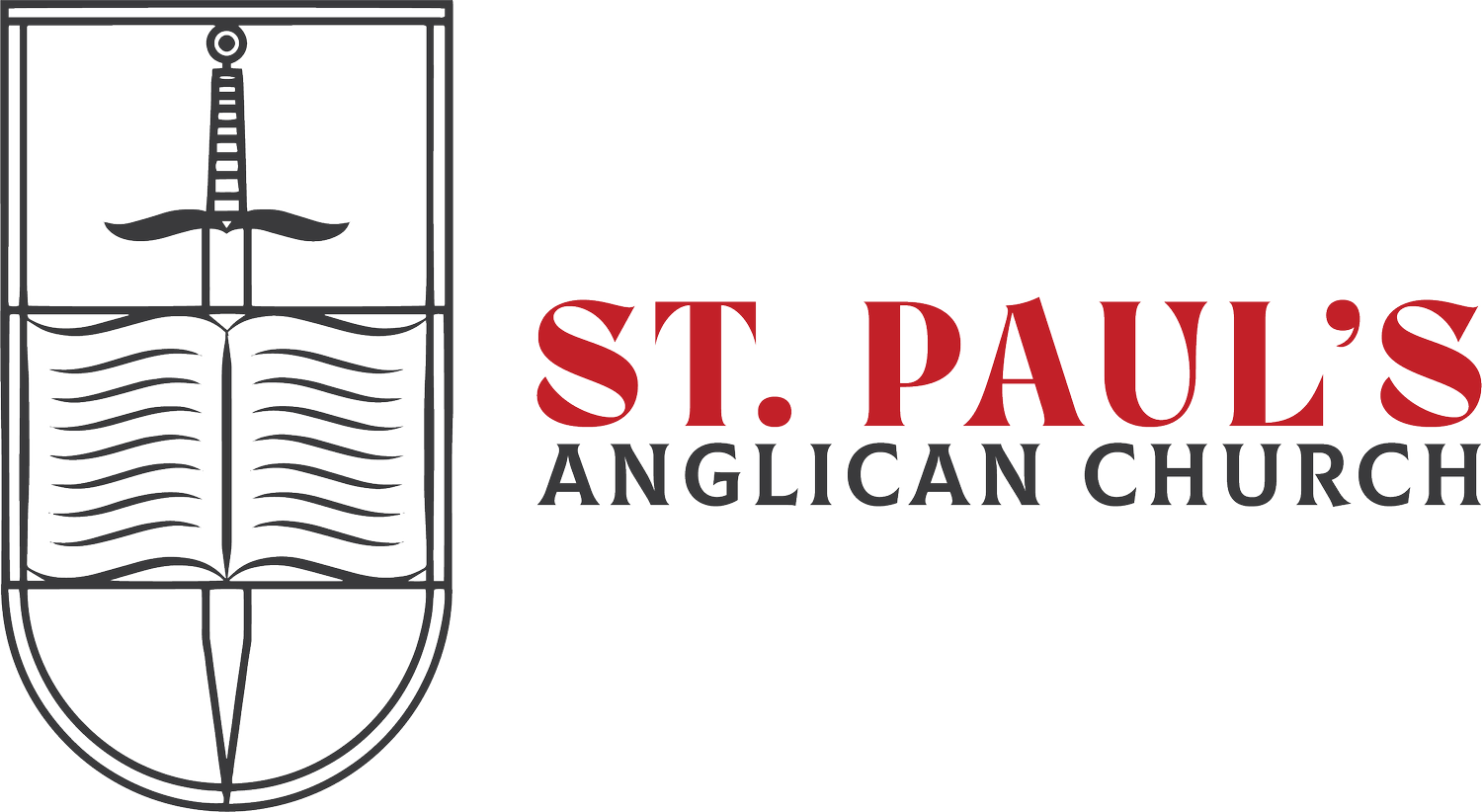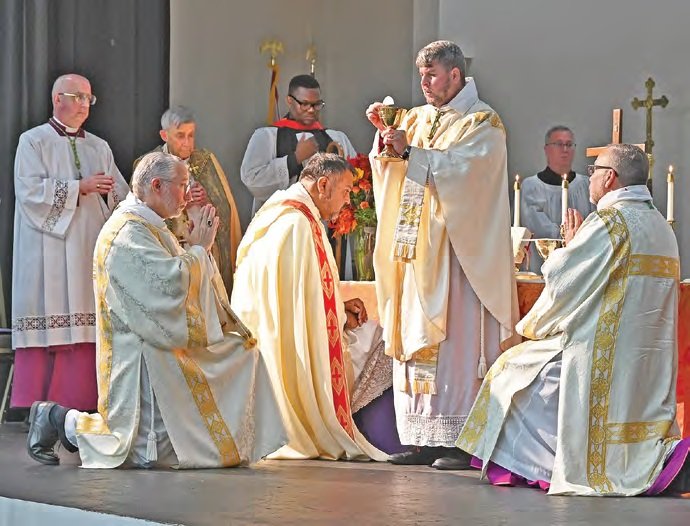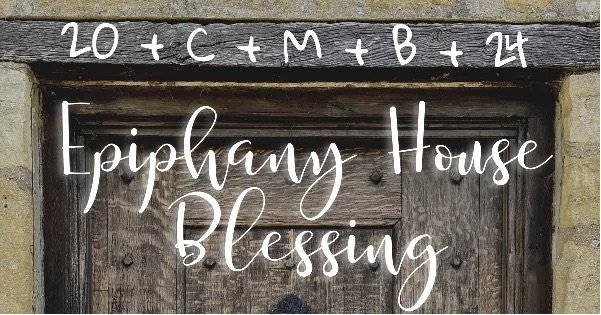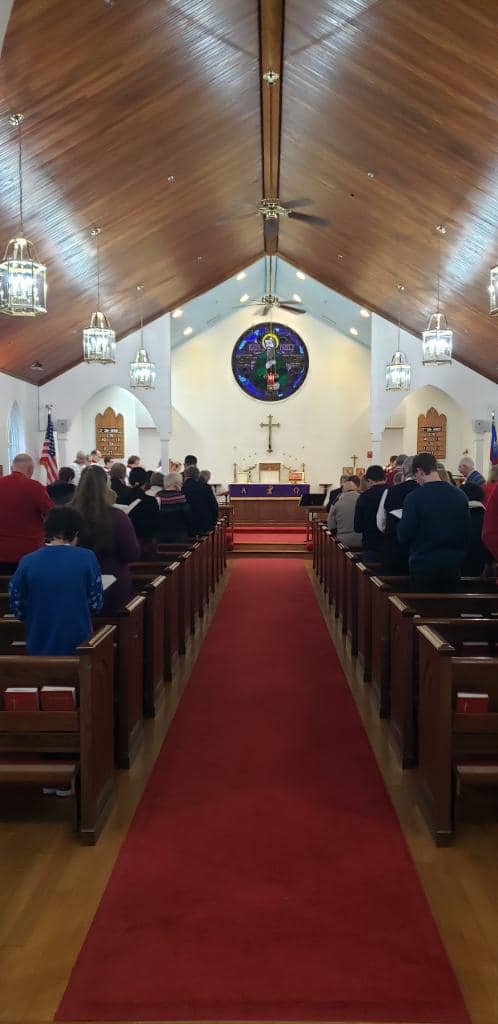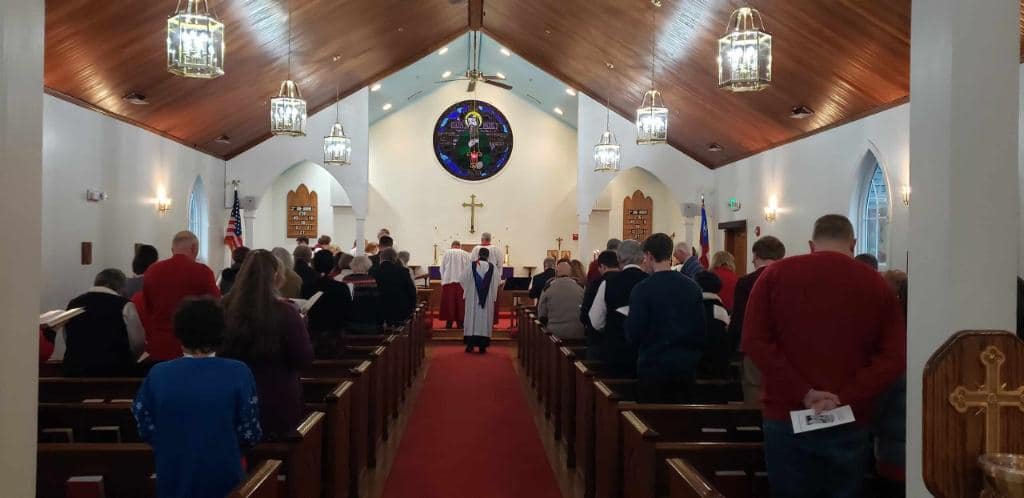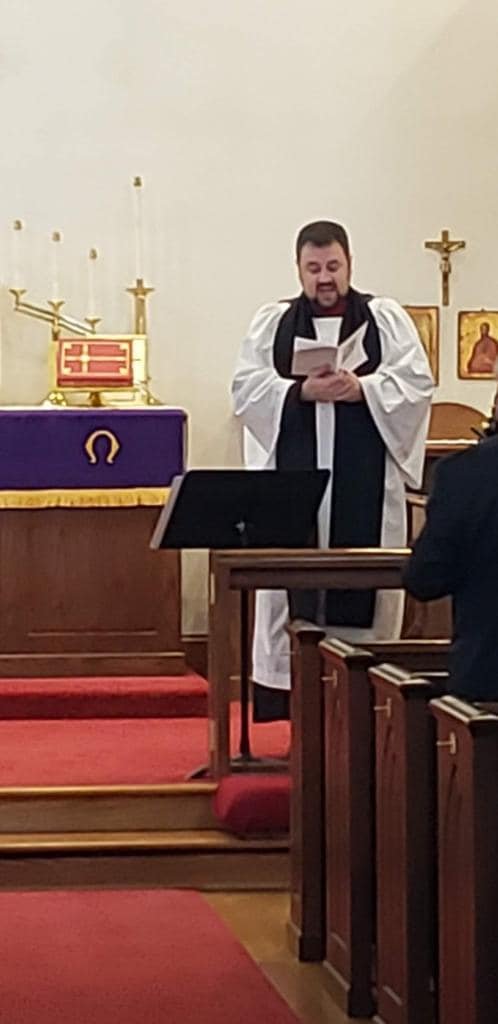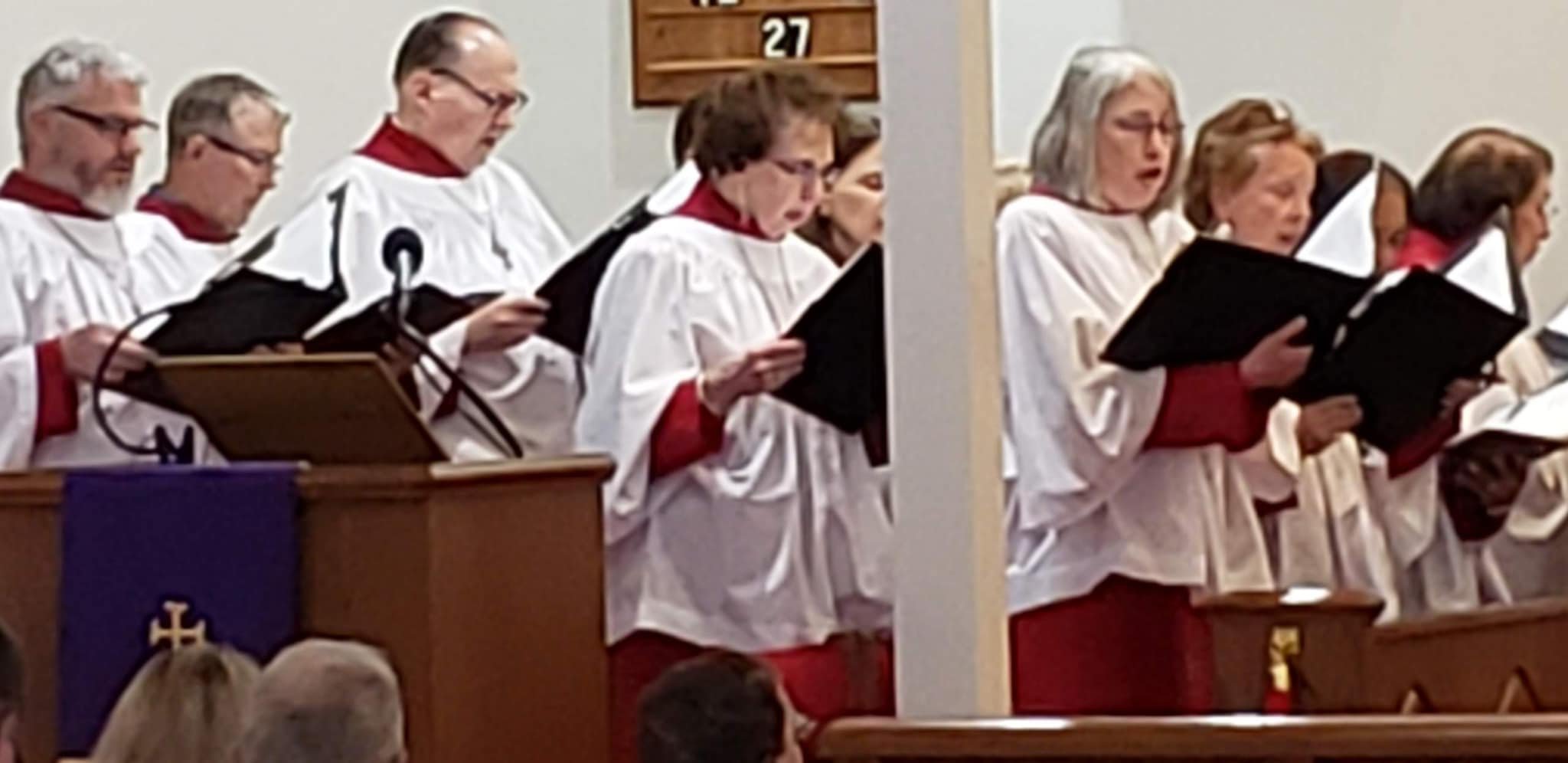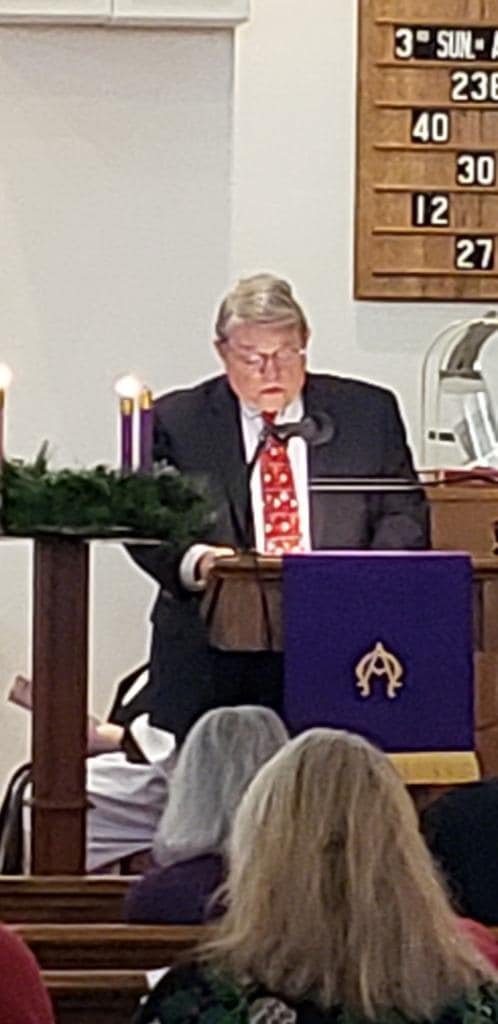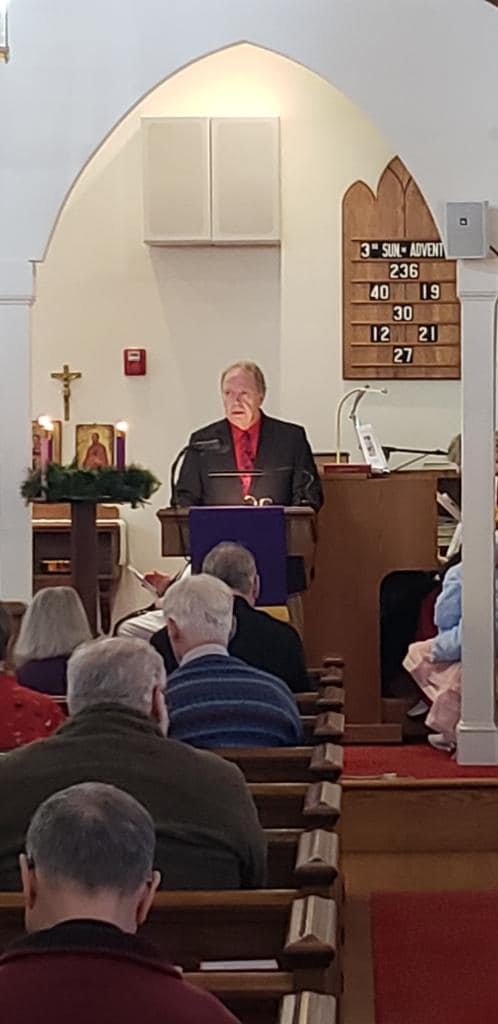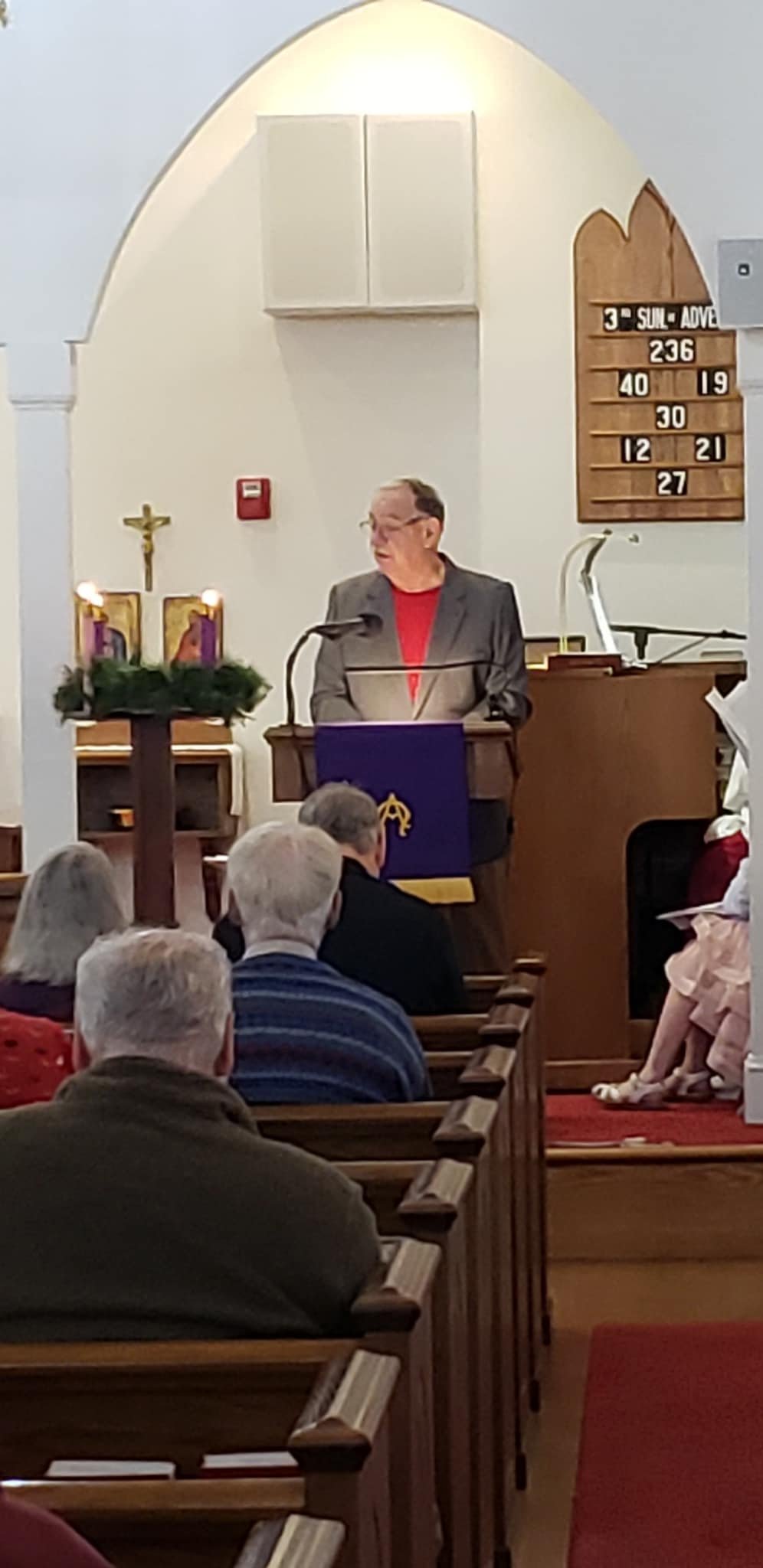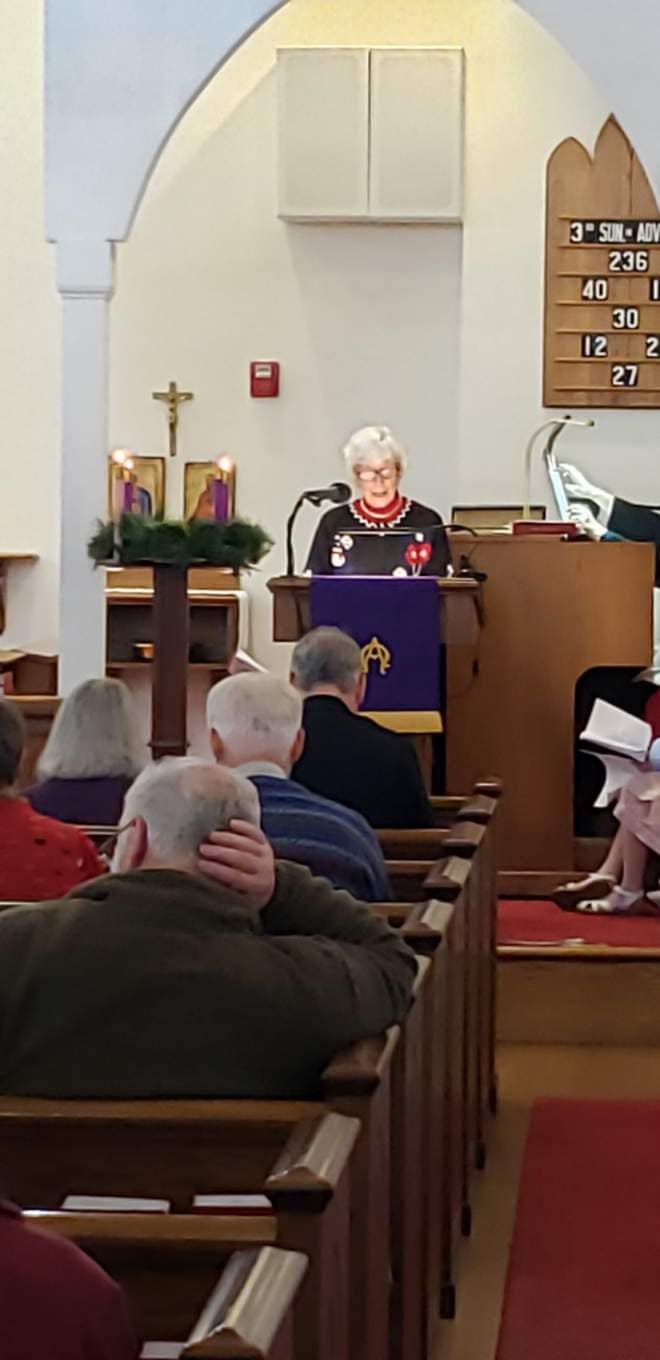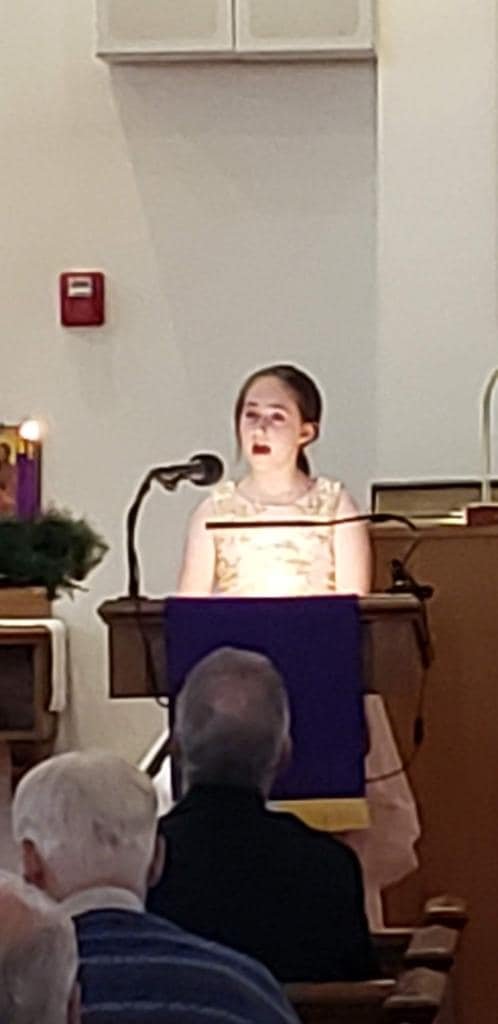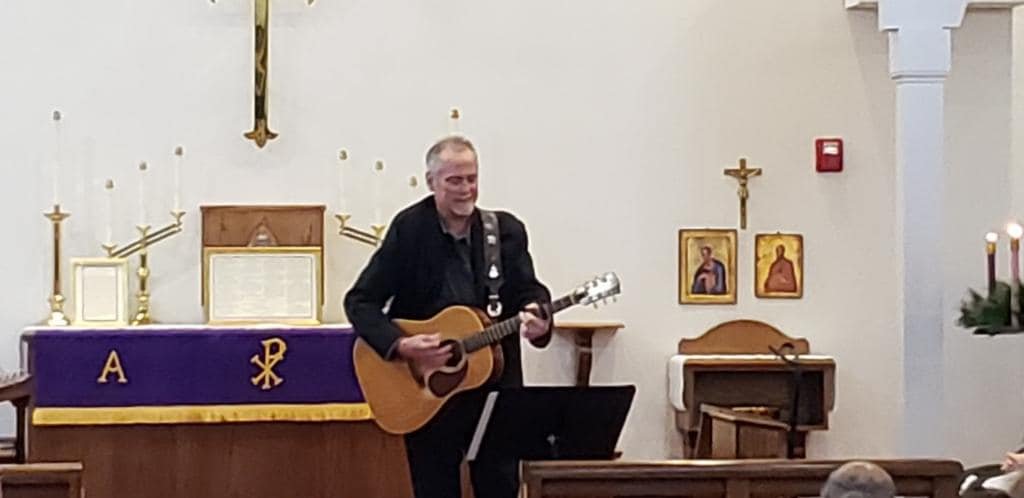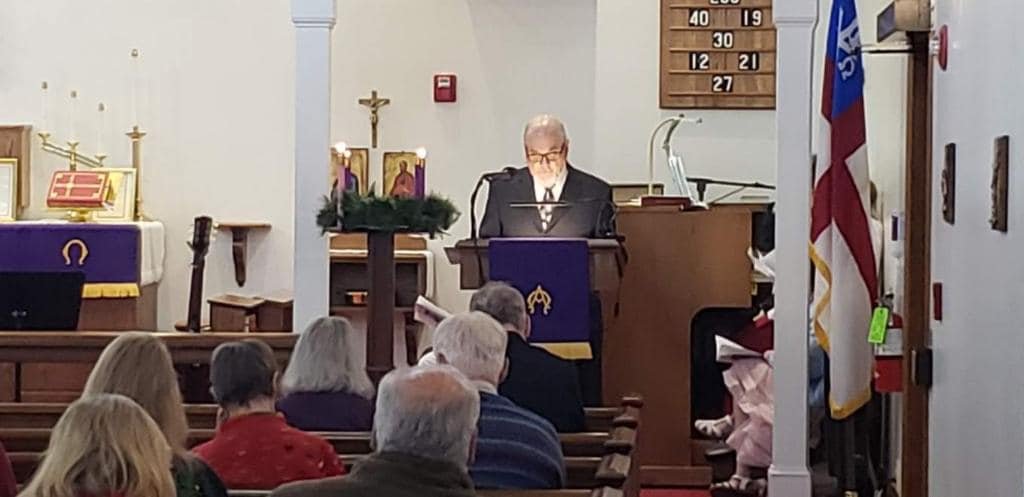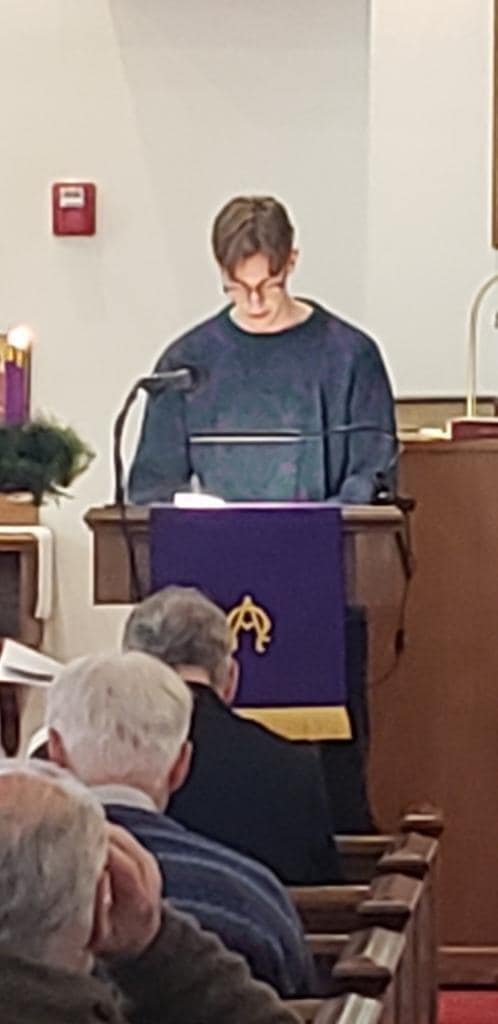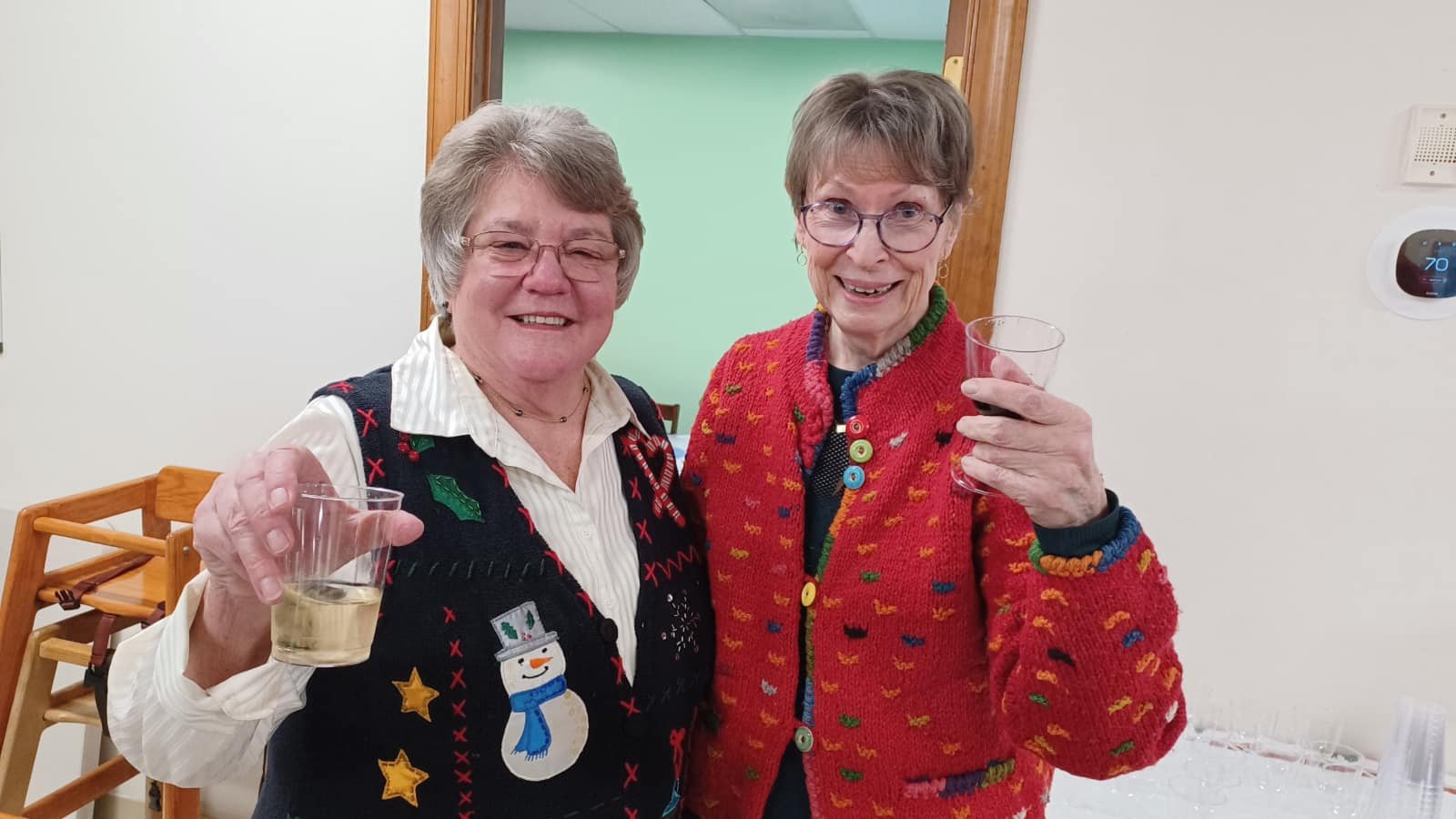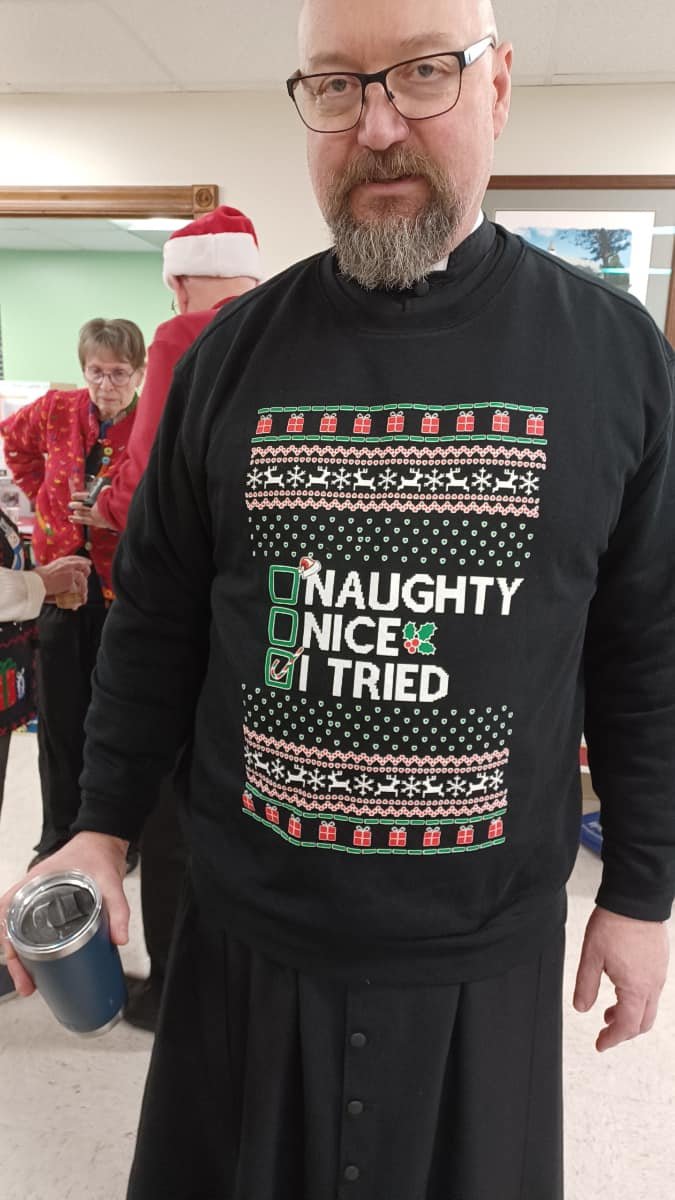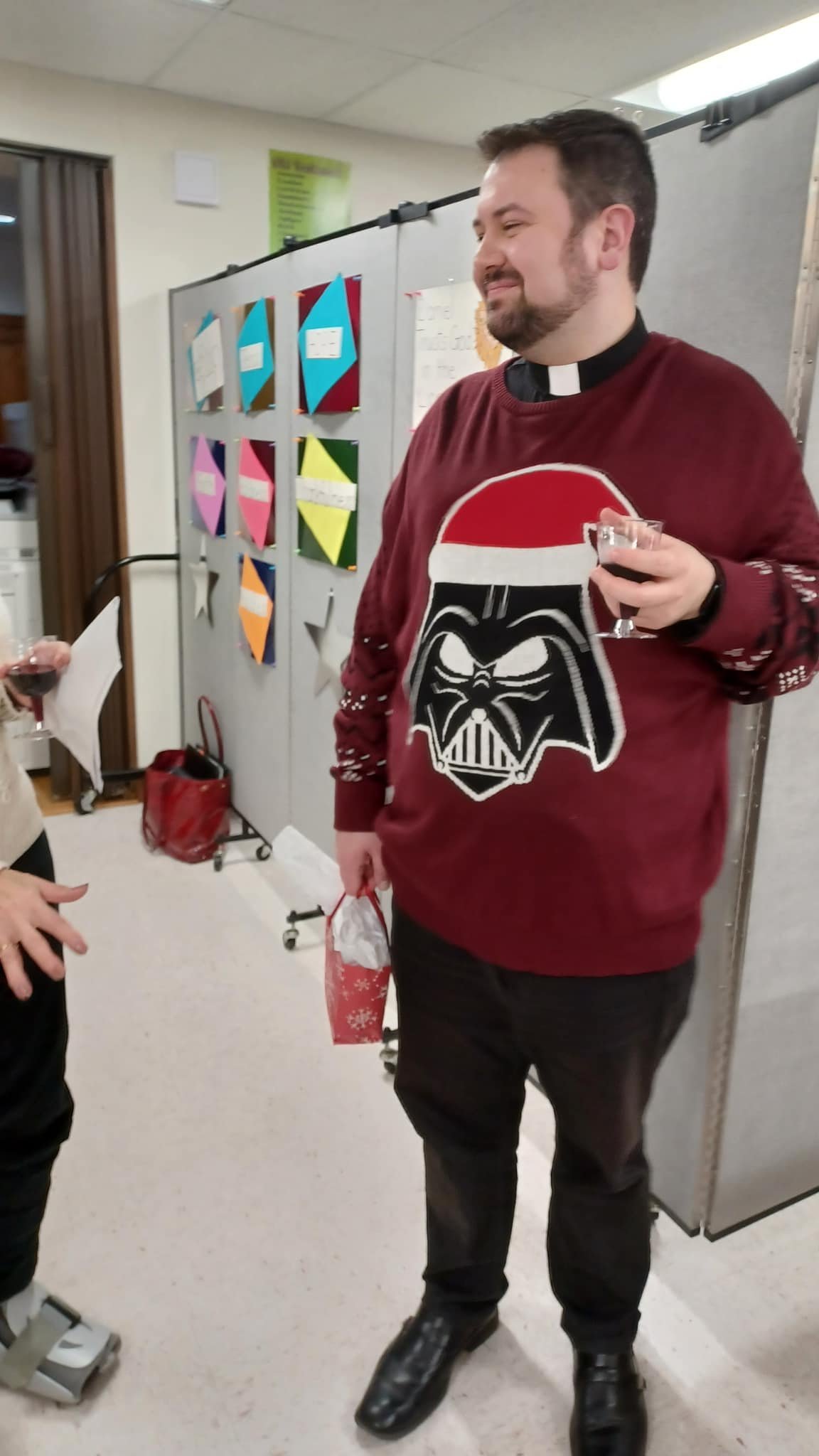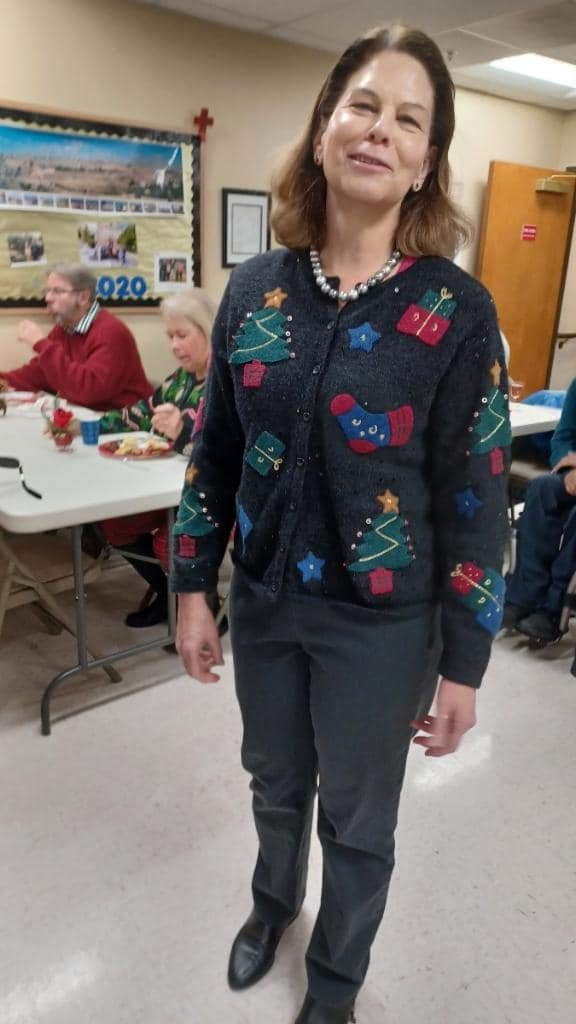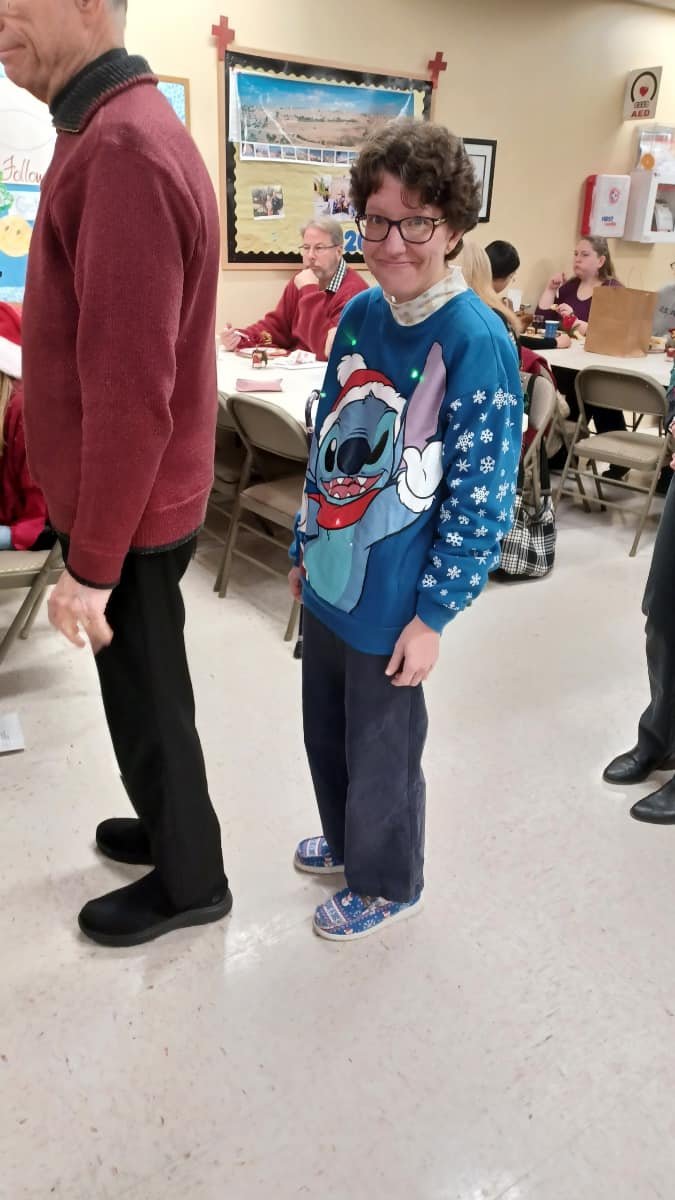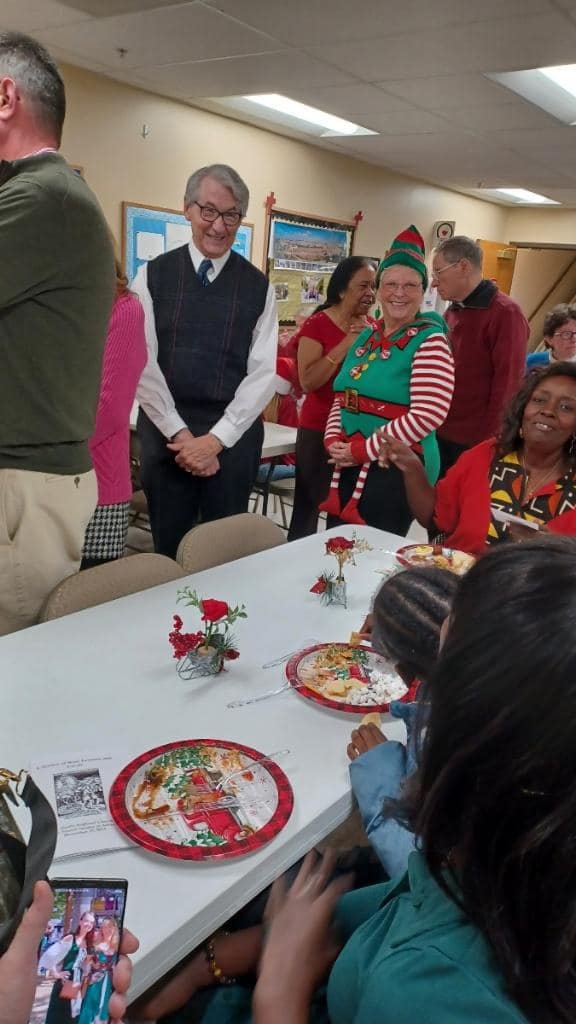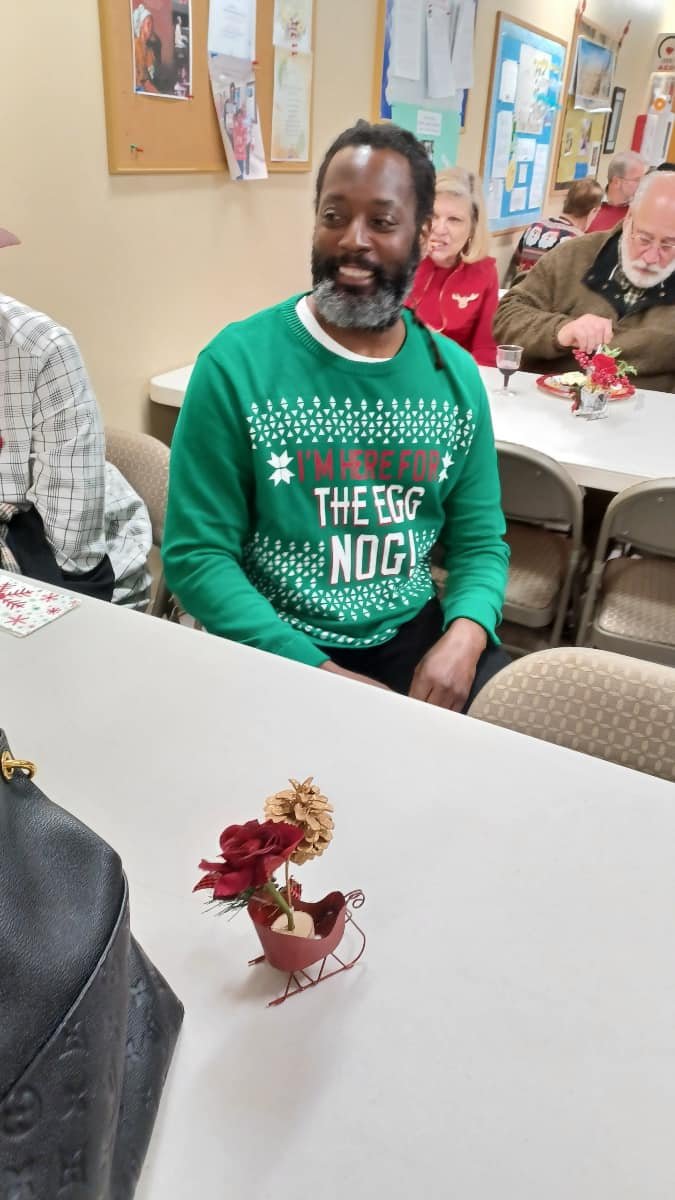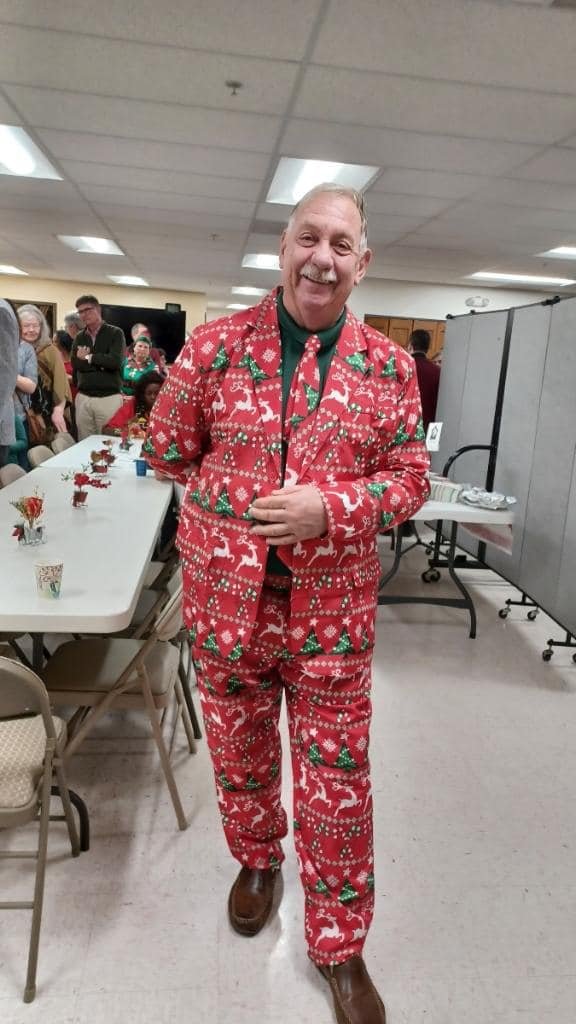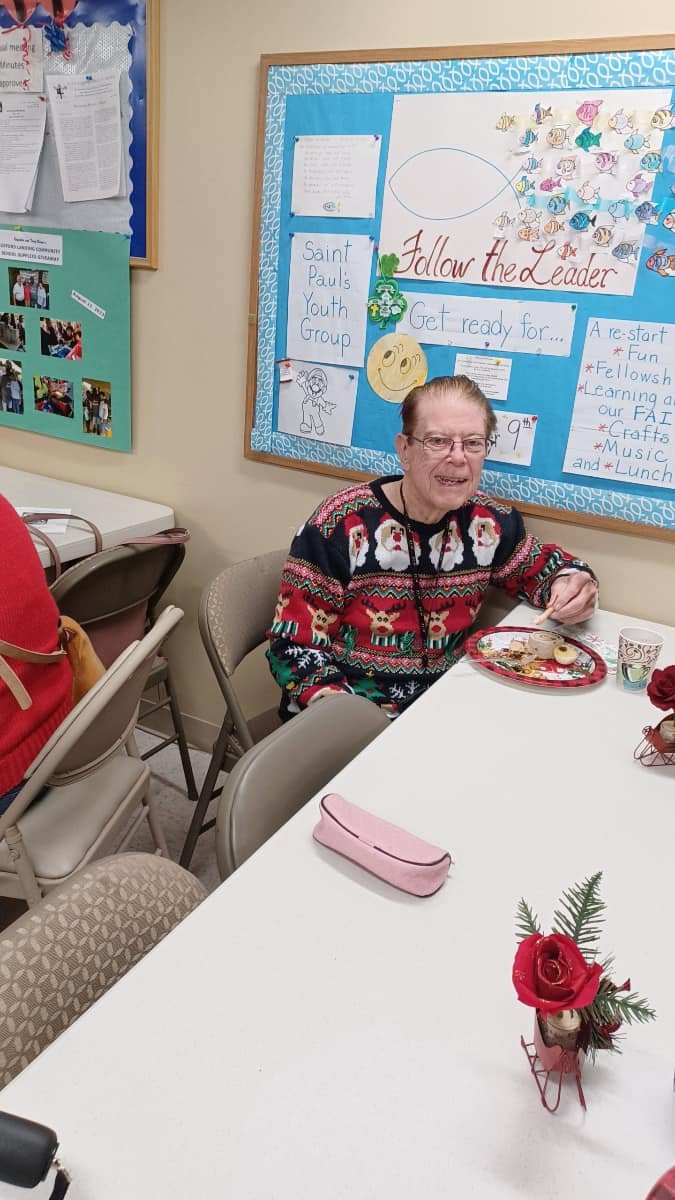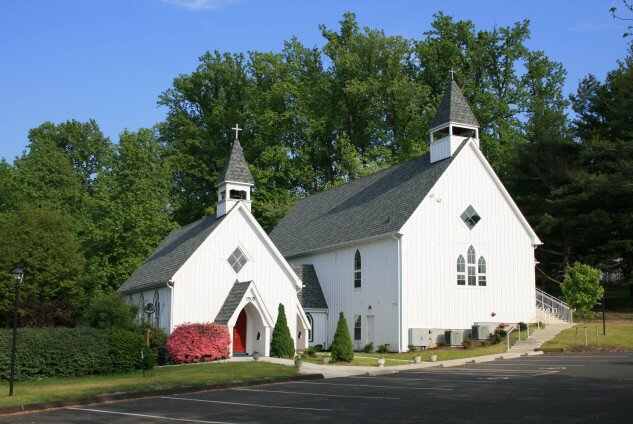
NEWS
Reflection: The 2024 APA Clergy Retreat on G3 Unity
This past week, the clergy from the Diocese of the Eastern United States of the Anglican Province of America gathered in Helen, Georgia for a clergy retreat centered around the topic of unity in the Continuing Anglican Movement. We had a wonderful time of fellowship, enjoying the German-themed town of Helen which is full of exquisite cuisine and lots of German beer. In the proceedings of the conference, we heard from several speakers and had thorough conversation in which different voices and perspectives were given room to express questions and thoughts about what institutional unity might look like. We also heard from Fr. Briane Turley about reviving a Priests for Life ministry and Fr. Mark Perkins talked about the developments at St. Dunstan’s Academy. The major conversations revolved around three sessions: (1) Bp. Markus Dogo, the Bishop of Kafanchan in the Church of Nigeria; (2) presentations from Bp. Chad, canon theologian Fr. Glenn Spencer, and Archdeacon Mike Ward; and (3) a forum for the clergy to express their opinions.
Bp. Dogo’s talk was an informative look at the Church of Nigeria. The CoN began when missionaries from the Church of England brought the Gospel to the people of Nigeria. The CoN continues to be a faithful bearer of that same Gospel, growing at astounding rates: There are over 20 million Anglicans in Nigeria and 161 dioceses. While they remain members of the Anglican Communion—meaning they are in communion with the Church of England—they have been in an uneasy situation since the 1998 Lambeth Conference where the topic of revising the Church’s teachings on sex and sexuality was first broached. Their consternation at the Anglican Communion’s policies on women’s ordination and sexual ethics resulted in the Kigali Commitment of 2023. The Commitment empowered the orthodox provinces of the Anglican Communion to double down on their commitment to the authority of Scripture while highlighting the failure of the Archbishop of Canterbury and the rest of the Anglican Communion to uphold the historic faith. The Commitment calls for repentance and a reconfiguration of the Anglican Communion. Bp. Dogo was sent to our clergy retreat on behalf of the CoN to begin a conversation about what kind of relationship we could have with them in the future. Nothing concrete was proposed, but Bp. Dogo did provide a potent exhortation for us all to contend for the faith once delivered to the saints by earnestly standing by the truth of the Christian faith.
The second session on the topic of institutional unity in the G3 featured three presentations. The first was Bp. Chad who gave a talk on the theological understanding of the unity of the Church. He pointed out that the current relationship between the Anglican Province of America, the Anglican Catholic Church, and the Anglican Church in America is a sacramental one based on the Communion Concordat of 2017. Bp. Chad reminded us that the APA is “entirely committed” to that agreement and in fully realizing its vision for full unity. Together, we possess the four notes of the Church: one, holy, Catholic, and apostolic; the goal now is to restore koinonia. To do so, we must move forward in a deliberate manner, being careful not to repeat the mistakes of the past or wander into new errors.
Bp. Chad then read a report from Fr. Spencer titled “Intercommunion or Union?” Fr. Spencer examined two relevant case studies. The first is the Standing Conference of the Canonical Orthodox Bishops in the Americas (SCOBA) which was a group of bishops from various Orthodox jurisdictions in the United States that met to pave the way for greater unity between their groups. It was later replaced by the Assembly of Canonical Orthodox Bishops of North and Central America when SCOBA had succeeded in its mission. The second case study was the debacle at Deerfield Beach in which unity between Continuing Anglicans was rushed and further schism occurred as a result. From these two studies, Fr. Spencer urged us to resist the tyranny of the urgent, gather data about our respective jurisdictional situations, be attentive to the unique cultures of the various jurisdictions involved, think through the question of authority, and to be attentive to our Solemn Declaration, Constitution, and Canons.
The final speaker of the second session was Fr. Mike Ward on the topic of canonicity and institutional unity. The crux of the canonical issue is that while the ACC canons allow for the potential dissolution of the entity (see 21.13), the APA Constitution and Canons lack such a provision. From a canonical standpoint, then, there are a few possible solutions moving forward: (1) the APA could amend its founding documents to allow for dissolution or adaptation to a new ecclesiastical situation; (2) clergy and laity could receive letters dimissory that allows them to move to a new ecclesial environment and the APA could exist purely as an “empty shell”; (3) The APA could receive letters dimissory from the members of other jurisdictions and assume them; or (4) a SCOBA-like structure could be erected as a means of supporting further dialogue and mutual ecclesiastical work.
The third session of the retreat was a conversation in which clergy had the opportunity to voice comments and questions about the material that had presented in the previous presentations. Not all the comments can be communicated here, but in general, the desire to move the process forward in a responsible way was articulated by several of the clergy. This was evident in a number of questions about and suggestions for moving forward, like the establishment of a committee with representatives from each of the jurisdictions that could craft certain proposals to be adopted by the G3 provinces and implement the will of the G3 in creating common resources, like a joint website, a joint catalogue of G3 parishes, and policies, like uniform standards for the Boards of Examining Chaplains. Further, the commitment to unity was evident in the desire for real grassroots communications and connectivity between members of the various provinces.
It’s been seven years since the Communion Concordat was signed by the then-G4 in Atlanta. That watershed moment was the end of a 40-year wilderness wandering during which the Continuing jurisdictions remained separated. Perhaps another Bible story is instructive here: Jacob’s 14 years of labor for his wife Rachel. While we have certainly seen many good things in the first seven years, progress has been slow. But the story of Jacob reminds us that these years of laboring for something so important are worth it, even when they’re hard and even when they take longer than we might have originally anticipated. Personally, I left our clergy retreat feeling excited about the prospects for the future, and I look forward to seeing what God will do in our midst.
Reflection: G3 to G1?
In response to these innovations, a group called the Fellowship of Concerned Churchmen sponsored what is called the Congress of St. Louis, a gathering of nearly 2,000 Anglicans from September 14-16, 1977. The result of this conference was a formal split from TEC and the a document called the Affirmation of St. Louis. The Affirmation of St. Louis commits those who broke from TEC “to continue in the Catholic Faith, Apostolic Order, Orthodox Worship and Evangelical Witness of the tradition Anglican Church, doing all things necessary for the continuance of the same.” It emphasizes the need for Anglicans to submit to Holy Scripture, the Nicene, Apostles’ and Athanasian Creeds, the Tradition of the Church “especially as defined by the Seven Ecumenical Councils of the undivided Church”, and the seven Sacraments—Baptism, Confirmation, Eucharist, Matrimony, Holy Orders, Penance, and Unction of the Sick. In the Solemn Declaration of the Anglican Province of America, our Bishops pledge to uphold the Affirmation of St. Louis.
Sadly, whenever there is a split in the Church, even a warranted one, it seems to lend itself to further fracturing. The group that left TEC in 1977 did not stay together. The first things this group did was consecrate four bishops—Charles Doren, James Orin Mote, Robert Morse, and Francis Watterson. Unfortunately, due to personalities, politics, and jurisdiction, this unified movement divided into three different bodies: The Anglican Catholic Church, the United Episcopal Church of North America, and the Diocese of Christ the King. These bodies underwent their own jurisdictional evolutions and splits so that, by the 2000s, the major players were the Anglican Catholic Church (ACC), Anglican Church in America (ACA), and Anglican Province of America (APA), and the Diocese of the Holy Cross.
Happily, the story does not end in disrepair and conflict. In 2017, Abp. Mark Haverland (ACC), Bp. Brian Marsh (ACA), Bp. Walter Grundorf (APA), and Bp. Paul Hewett came together at a Joint Synod in Atlanta, Georgia to sign an intercommunion agreement. The text of that agreement is as follows:
We acknowledge each other to be orthodox and catholic Anglicans in virtue of our common adherence to the authorities accepted by and summarized in the Affirmation of St. Louis in the faith of the Holy Tradition of the undivided Catholic Church and of the seven Ecumenical Councils.
We recognize in each other in all essentials the same faith; the same sacraments; the same moral teaching; and the same worship; likewise, we recognize in each other the same Holy Orders of bishops, priests, and deacons in the same Apostolic Succession, insofar as we all share the episcopate conveyed to the Continuing Churches in Denver in January 1978 in response to the call of the Congress of Saint Louis; therefore,
We welcome members of all of our Churches to Holy Communion and parochial life in any and all of the congregations of our Churches; and,
We pledge to pursue full, institutional, and organic union with each other, in a manner that respects tender consciences, builds consensus and harmony, and fulfills increasingly our Lord’s will that His Church be united; and,
We pledge also to seek unity with other Christians, including those who understand themselves to be Anglican, insofar as such unity is consistent with the essentials of Catholic faith, order, and moral teaching.
For those who know, former St. Paul’s parishioner Jack Wyatt, who served our parish as Senior Warden, was one of the organizers of that Joint Synod at which this agreement was signed. At the time, these four churches were referred to as the G-4. In 2021, the G-4 became the G-3 as the Diocese of the Holy Cross joined the Anglican Catholic Church.
Today, there are three main representatives of Anglicanism in America. The G3 represents Continuing Anglicanism as defined by the Affirmation of St. Louis. The Episcopal Church can be described as “Canterbury Anglicanism” because they are still in communion with the Church of England. They ordain women to the diaconate, priesthood, and episcopate and perform or bless same-sex unions. The final variation of Anglicanism in the United States is embodied by the Anglican Church in North America (ACNA) which was formed in 2009 after the consecration of the Episcopal Church’s first openly gay, non-celibate Bishop V. Gene Robinson. They tend to be Evangelical in their outlook, blending much that can be found in the non-liturgical traditions with contemporary liturgy. While generally conservative on social issues, they also have a varying acceptance of women’s ordination by diocese. Some dioceses ordain women priests, other dioceses will ordain women deacons, but not priests, while still others do not ordain women at all. So there’s Continuing Anglicanism (G3), Canterbury Anglicanism (TEC), and Evangelical Anglicanism (ACNA).[1]
All this brings us to the topic of our retreat next week where the topic is G1. The 2017 Intercommunion Agreement was an awesome first step in bringing our disparate jurisdictions back into unity. What we will be discussing next week, presumably, is what that unity might look like moving forward. These kinds of developments happen slowly and organically so nothing is impending. But it is an exciting time to be a Continuing Anglican! So much of the Christian landscape is being torn apart by disunity, but since 2017, we have been on a trajectory towards unity! So if you think about it, please pray that our bishops would have the wisdom to implement Christ’s prayer for his Church, “That they all may be one” (John 17:21).
The Prayer for the Unity of God’s People (BCP 37-38)
O God, the Father of our Lord Jesus Christ, our only Saviour, the Prince of Peace; Give us grace seriously to lay to heart the great dangers we are in by our unhappy divisions. Take away all hatred and prejudice, and whatsoever else may hinder us from godly union and concord: that as there is but one Body and one Spirit, and one hope of our calling, one Lord, one Faith, one Baptism, one God and Father of us all, so we may be all of one heart and of one soul, united in one holy bond of truth and peace, of faith and charity, and may with one mind and one mouth glorify thee; through Jesus Christ our Lord. Amen.
[1] These categories, while not identical, are based on Canon Robert Bader’s categorization in “Canterbury Anglicanism, GAFCON Anglicanism, and Scranton Anglicanism,” Philorthodox, September 24, 2018, https://philorthodox.blogspot.com/2018/09/scranton-anglicanism.html.
Old Time Bible Hour: Tuesday, March 12th at 6p
The Old Time Bible Hour is a once-a-month gathering where we look at how Christians who have gone before us read the Scriptures. This month, we’re looking at Noah’s Ark through the preaching of the Church Father Origen (185-253) who was one of the most important preachers and biblical exegetes in Christian history. If you have any questions about the event, please reach out to Fr. Wesley.
Please note: the event will be preceded by Evening Prayer which will take place at 5:30p.
Daily Office Workshop: Postponed to February 6 at 6p
The great Anglican ascetical theologian Martin Thornton says “The Eucharist is the heart of the Church; the [Daily] Office is its beat; and Private Prayer is the circulation.” The Book of Common Prayer is an ascetical system that centers our lives around Holy Communion in conjunction with the Daily Offices of Morning and Evening Prayer. This workshop on February 6th will be focused on the why behind this rationale and the how of praying Morning and Evening Prayer. We will begin our time at 6p with Evening Prayer in the Chapel followed by a time of instruction. Please contact Fr. Wesley if you have any questions.
Reflection: The Blessing of Chalk
As of this evening, the feast of Christmas is over. But don’t worry, the party continues as we celebrate the next Feast in the Church Kalendar: the Feast of the Epiphany! Epiphany is about Christ as the light to the world and commemorates the journey and visitation of the Three Wise Men to the Christ Child.
At our celebration of the Feast of the Epiphany tomorrow (Saturday), we’ll bless a lot of individual pieces of chalk. On Sunday after each service, we will hand out the chalk along with a prayer card and instructions about chalking your door to everyone who attends. The chalking of doors is a common Epiphany tradition. It’s a season where we celebrate the Wise Men arriving at Jesus’ family home to worship him. By chalking our doors and praying for our homes, we intentionally invite him into our homes so that we might worship him with our families, just like we invite him into our hearts so that we can worship him with all that we are. Not only is the blessing of your home and chalking your door an excellent opportunity to reflect on the mystery of your own salvation, but it can also be a neat way to build missional relationships with your neighbors and friends who might ask you what the numbers and letters above your door means.
So how can you participate in this tradition?
When you receive the chalk on Sunday, take it home with you. When you get to the front door of your house or apartment, stop and write
20 + C + M + B + 24
above the door. The C, M, and B stand for the traditional names given to the three Magi: Casper, Melchior, and Balthasar. It can also act as an abbreviation for the Latin prayer “Mansionem benedicat” which means “Christ, bless this house.”
Once you have chalked your door, say the following prayer:
“Visit, O blessed Lord, this home with the gladness of your presence. Bless all who live or visit here with the gift of your love; and grant that we may manifest your love to each other and to all whose lives we touch. May we grow in grace and in the knowledge and love of you; guide, comfort, and strengthen us in peace, O Jesus Christ, now and forever. Amen.”
It’s important to note that once the chalk is blessed, it should be treated reverently. Please don’t throw it in the trash can. When disposing of something holy, there are three ways you can do it. First, you can burn it. Unfortunately, chalk doesn’t burn, so this doesn’t work. A second option is that you can bury it. A final way of disposing of a holy object can be dissolving it in water and pouring the water out onto fresh ground. The third option is probably the best in this particular instance, but if you would prefer, feel free to bring your chalk back to church next week and we’ll take care of it for you.
Blessed Feast of the Epiphany!
Fr. Wesley
Looking Back at 2023 and Forward to 2024
Standing at the end of 2023 and the beginning of 2024, there is so much for us at St. Paul’s to be thankful for. This has been a spectacular year. We got to celebrate Fr. David’s ordination to the priesthood and welcome back Fr. Dennis and Patti Ryan, congratulate Cathy Gates on a tenure as Senior Warden well done (this is bittersweet for us since she is no longer on Vestry, along with Gary Rigby). We welcomed David Smith on as the new Senior Warden and Joann Montgomery and Joan Smith as Vestry Members. Our Vestry has continued to work tirelessly to make St. Paul’s a beautiful, hospitable, and reverent place of worship.
For the first time since I arrived at St. Paul’s in 2019, we performed more Baptisms than Funerals and pray that this trend continues! We saw seven new confirmands and more receptions into the parish when Bp. Chad visited. Fr. David and I have started celebrating Holy Communion on a daily basis and we pray for each and every parishioner of the parish at the Intentions at least once a week. We have also continued shepherding our “satellite congregation” at the Brightview retirement community (Fr. David is primarily responsible for that now and they love him!). God has brought us new people, many of whom were previously unchurched or are “Evangelicals on the Canterbury Trail”. A good number of those newcomers have ended up serving in some capacity through Altar Guild, serving at the Altar during services, ushering, and other capacities.
We blessed a number of houses during Epiphanytide. We continued our partnership with Riva Trace Baptist Church to assist them during their Winter Relief by providing a meal for their residents. Shrove Tuesday was another success! Ken Sabel gave a wonderful presentation about the Holy Land Pilgrimage that he and some other parishioners got to go on with Bp. Chad. There was a Sparkle and Shine Day in July as we prepared for our episcopal visitation. Everyone who participated did fantastic work! Bp. Chad communicated to me that he was very pleased at his visit. Raynaldo continues to be a dynamo in our community with the Brown Bag Lunch Program, the Back-to-School event, and his Christmas Party. We began a small reading group at St. John’s College with some of our students who attend. The Parish Picnic was a fun day of fellowship and food at Quiet Waters Park. We blessed a lot of pets for the Feast of St. Francis (still no cats though…). We had a wonderful Stewardship Campaign that once again proves how robust, active, and giving our parish is. in conjunction with that Stewardship Campaign, we had a great Committee and Ministry Fair where the various committees and ministries of our church got to show everyone all the important work they do and solicit help where needed. David Kamioner launched our new Veteran’s Group at St. Paul’s which has already helped out immensely at the Operation Sleigh Ride event on December 19. Lessons and Carols and the 2nd Annual Jingle Mingle were fun ways to get into the Christmas spirit!
On Fridays, we finished our Bible study on Luke-Acts in the Spring and, this Fall, began our ongoing journey through Dante’s Divine Comedy, a demanding but rewarding study! The Thursday night Bible study continues to go strong, as well, studying the Book of Isaiah this Fall. Over the Summer, we had our second annual Summer Study that delved into The Genesis of Gender: A Christian Theory by Abigail Favale. This is a book I highly recommend as our culture wrestles with important questions sexual identity, a debate that really stems from a more fundamental question about whether we are created by God or whether we get to create ourselves. There were multiple retreats over the course of the year. Our first was on the Canticles from St. Luke, the Benedictus, Magnificat, and the Nunc Dimittis that we regularly pray at Morning and Evening Prayer. In June, we looked at the harmony of Christian Marriage, Christian Family, and Parish Life. There was also a Ladies Guild Retreat that focused on the topic of forgiving ourselves. We weren’t able to record audio because of the conversational and personal nature of the retreat but I wrote three reflections on it in previous newsletters that were based on the three sessions of the retreat: The Three Dimensions of Forgiveness and the Problem of Self-Forgiveness; Our Identity in God; and Confession: Hearing God’s Story About Ourselves.
And of course, it’s important that we remember the departed members of our congregation who we said goodbye to (but not an eternal farewell) this year: Catherine Compton-Caputo, Emily Loiselle, Len Bender, and John Johnson. May light perpetual shine upon them, and may they rest in peace.
On a personal note, and I think I can speak for Fr. David when I say this, thank you from the bottom of our hearts for the opportunity to serve St. Paul’s. We are honored to be here and are thankful for each and every one of you.
What can we look forward to in 2024? On the one hand, this is always a precarious question because we will have to wait and see what God brings! However, on our end, we are looking to continue our momentum into the New Year by being faithful ministers of the Word and Sacrament. We will continue celebrating Holy Communion each and every day. We will keep looking for ways to integrate the Daily Offices of Morning and Evening Prayer into our life together alongside other helpful devotions and prayerful activities. Education and catechesis will continue to be a priority: a Newcomers Class begins in January, Thursday and Friday Bible studies will continue, we will be training some more new acolytes soon, and the Old Time Bible Hour will return. We will also look for more ways to intentionally lean into and learn from the Church Calendar so be on the lookout for some opportunities throughout this Church Year. Finally, in addition to being a parish centered on the Sacraments and Word of God, we want to continue being a “parish on the move” that focuses on mission, evangelism, service, and gathering. What God is doing for us here at St. Paul’s is so great, we have to share it with others and invite them into our common life together!
Thank you for making St. Paul’s such a phenomenal parish. It wouldn’t be the same without YOU!
Blessings,
Fr. Wesley
The Three Ts of Giving: Your Talent, Your Time, and Your Treasure
By Cathy Gates
Have you ever wondered what makes us a church? What brings us together? St. Paul’s is a gathering of believers that allows the church:
To praise and worship God, Jesus, and the Holy Spirit; and study and learn what God expects us to be.
To support one another as a family.
To accomplish our God-given mission which is to bring others to Christ by following the example Jesus set—to serve others. “For even the Son of Man did not come to be served, but to serve” (Mark 10:45).
We are a vibrant community that is blessed by the generosity of each member as they share their talent, time, and treasure.
The financial support St. Paul’s receives from each member provides for the maintenance of our charming, historic chapel, lovely church, the peaceful memorial garden, and the well-kept grounds. We are blessed by the spiritual guidance and teaching from Fr. Wes, our Rector, and Fr. David, our assisting priest. And our worship is enriched by the musical talents of our organist, Andrea Linnell.
Because of your generosity, the Missions committee supports several local organizations as well as sending financial aid to disaster areas. The Missions Committee outreach plan represents 23% of our church’s annual budget.
But sharing financial resources is not enough. As servants, we are called to share our time and talent as well. The Choir shares their time and talen as they preapre their music. We are blessed with an energetic Hospitality Committee that sets up and cleans up for our various fellowship get-toghethers. The Altar Guild is dedicated to reverently preparing the altars for every service. You’ll learn more about how you can share your talent and time at the upcoming committee fair.
Finally, we support one another through prayer and fellowship. We are called to rejoice when one of us rejoices, weep when one of us weeps, provide care when one of us needs caring. It is important that we love one another as Christ loves us. Prayer Shawl ministry makes and distributes blessed prayer shawls to anyone who needs Christ’s comfort of healing. Prayer Warriors pray daily for members and non-members who are suffering physically, emotionally, or mentally.
As you consider how you can support St. Paul’s with your time, talent, and treasure, remember God has given us all some measure of time, talents, and treasures. How are you investing yours to support St. Paul’s mission?
Stewardship Season 2024 is Underway!
“He that soweth little shall reap little; and he that soweth plenteously shall reap plenteously. Let every man do according as he is disposed in his heart, not grudgingly, or of necessity; for God loveth a cheerful giver.” -II Cor. ix. 6, 7
The 2024 budget was presented at the Annual Meeting last month. Please consider prayerfully what you can give so the Vestry can successfully fund the budget and fulfill St. Paul’s unique place in the community.
We appreciate your support whether you pledge formally or not. However, pledges are particularly helpful. They allow the Vestry clarity and certainty to make sure we meet all our obligations for the coming year. They also allow us to look to the future and plan for the years ahead. We understand some may be hesitant to pledge lest sudden a change in circumstances make it difficult to meet the pledge amount. Please trust in the Lord and know that God always provides.
May God bless you,
Clint Rosso
Chair, St. Paul’s Stewardship Committee
